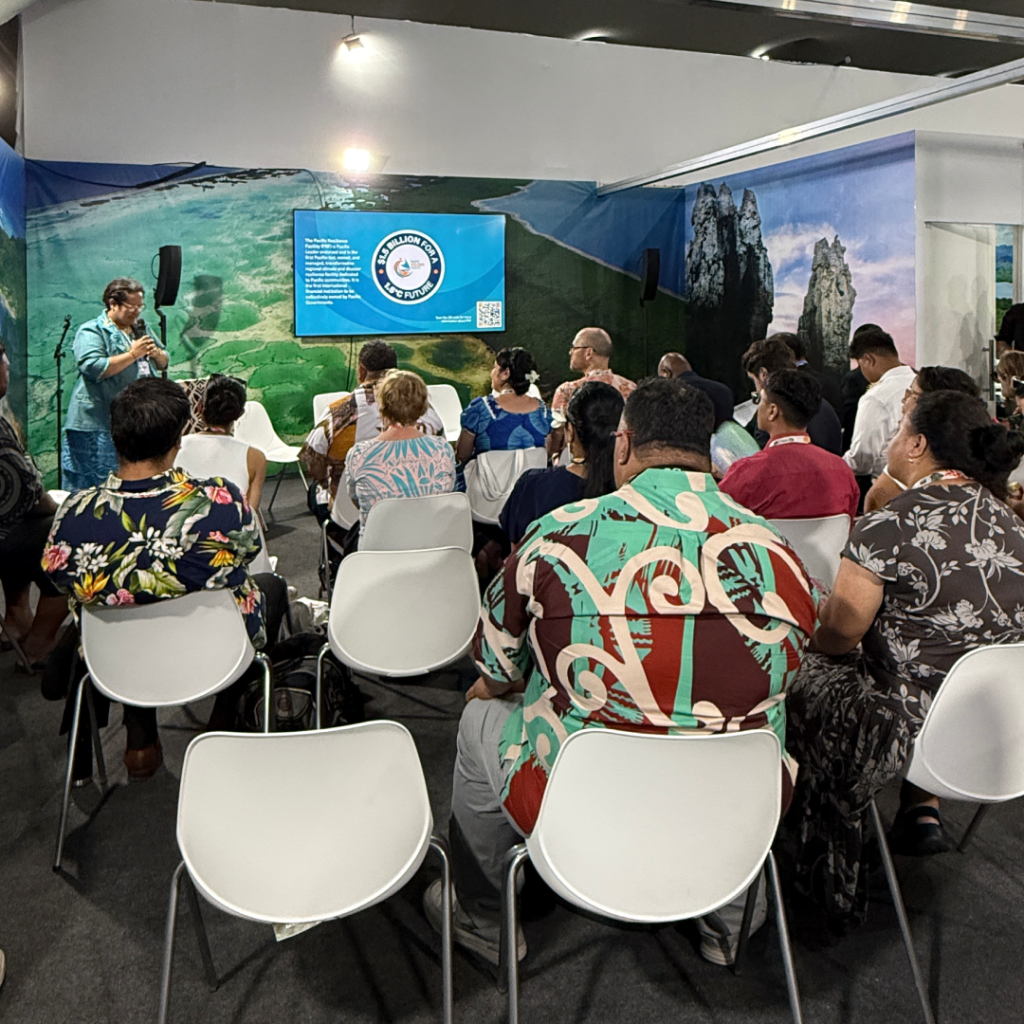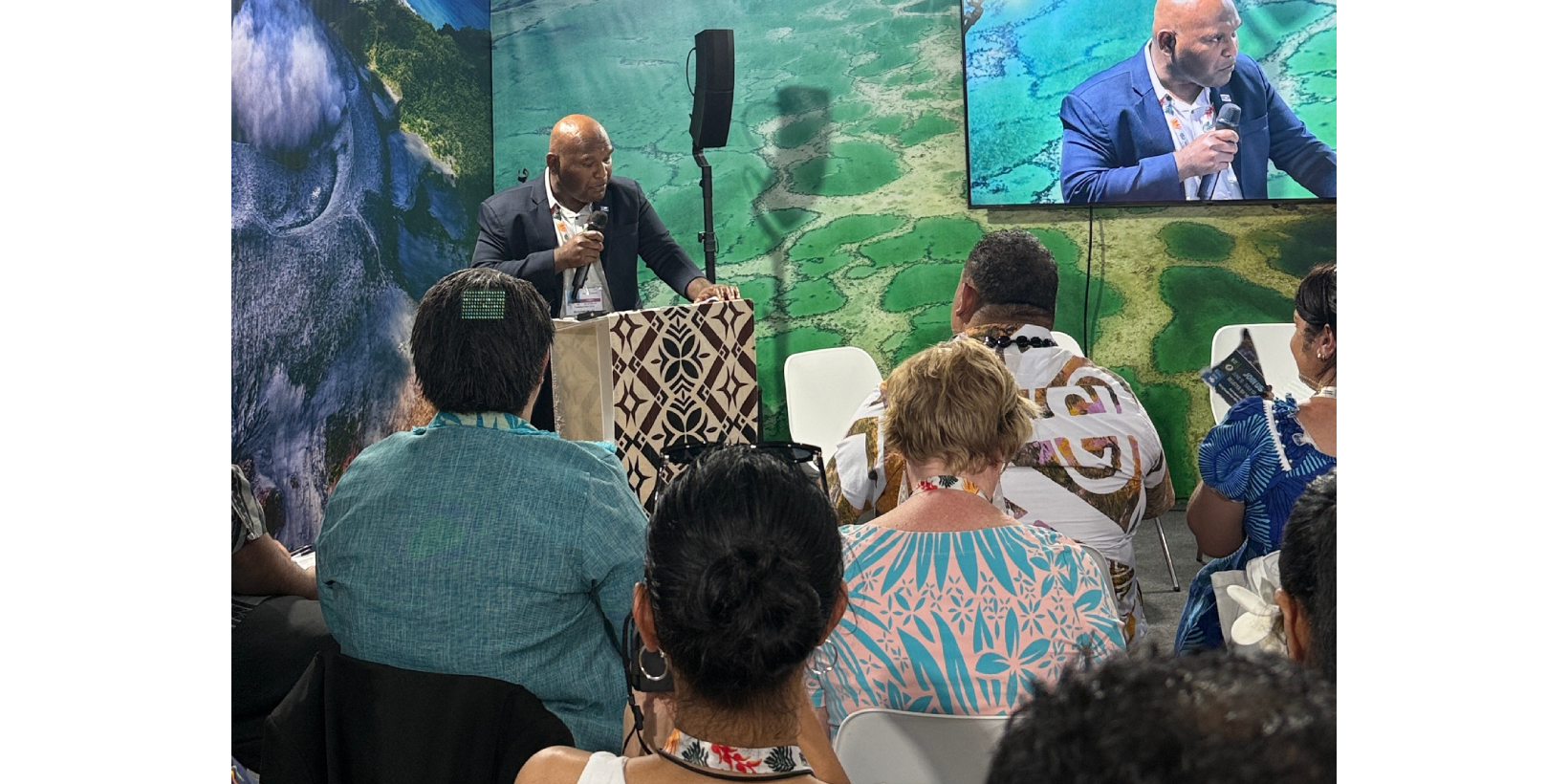The Solomon Islands has joined Pacific Island nations in calling for a complete transformation in the way climate finance is delivered, during the 30th United Nations Climate Change Conference (COP30) now underway in Belém, Brazil.
Delivering a statement on behalf of the Minister for Environment, Climate Change, Disaster Management and Meteorology (MECDM), Hon. Polycarp Paea, the Director of the Climate Change Division, Mr Thaddeus Siota, on Monday reaffirmed the Pacific’s strong and unified call for climate finance systems that are “owned, managed, and led by the Pacific.”
Mr Siota said the Pacific Resilience Facility (PRF) embodies this vision — a practical, regionally driven solution that moves beyond dependency on external donors towards a self-sustaining, Pacific-owned mechanism.
“The PRF is our answer to the challenge of climate finance,” he said.
“It represents a shift from dependency to ownership, from charity to investment, and from donor to investor mindset. This is how we ensure that climate finance truly works for us, in the Pacific, without compromising our governance and accountability,” he added.
He explained that the PRF will act as a “game-changer” for community-level resilience across the Blue Pacific Continent by ensuring funding is accessible directly to local governments and communities — not just through global or multilateral systems.

The PRF aims to address the long-standing climate finance gap that has limited Pacific Island nations’ ability to build climate-resilient infrastructure, protect vulnerable ecosystems, and support community adaptation.
So far, the PRF has received pledges totalling US$167 million, with Forum Leaders committing to raise the amount to US$500 million by 2026.
An additional US$333 million is needed to reach this target, and the facility is expected to begin operations following its ratification and entry into force by early 2026.
Mr Siota said the first call for PRF project proposals is anticipated around late 2025 or early 2026, with the facility to be headquartered in Palau and a three-year pilot phase commencing in 2027.
“The Pacific Resilience Facility is not just a fund — it is a long-term commitment to our survival, our sovereignty, and our shared future,” he told delegates. “It ensures that, in all we do, iumi tugeda — we leave no one behind.”
He also acknowledged the leadership of Pacific countries in advancing the PRF vision and commended Australia’s commitment to host COP31 in partnership with Pacific Island nations.
“Hosting COP31 in the Pacific will give our region the platform to showcase what Pacific-led solutions can achieve,” he said.
“This is the power of what hosting a COP can do — it amplifies our voice, our priorities, and our resilience,” he added.
The PRF concept was first endorsed by Pacific Islands Forum Leaders as part of the region’s 2050 Strategy for the Blue Pacific Continent.
It was designed to provide direct, accessible, and flexible financing for communities facing the harsh realities of climate change from rising sea levels and coastal erosion to food security and water shortages.
The Solomon Islands delegation, through MECDM, reiterated that the PRF represents the Pacific’s collective determination to secure its own climate future through innovation and solidarity.
“We urge all our partners to support the PRF by fully capitalizing it, and to stand with us as we prepare for COP31 in the Pacific,” Mr Siota concluded. “Iumi tugeda, act now!’’.

According to the Pacific Resilence Facility Capitalsim Memorandum Booklet, The Pacific Resilience Facility (PRF) is a vision by Pacific Islands Forum (PIF) Leaders and is the first Pacific led, owned and managed regional climate and disaster resilience financing facility, dedicated to urgently help Pacific communities at the frontline of the climate crisis.
“The PRF is also the first International Financial Institution to be collectively owned by Pacific Governments which will enable it to scale access to climate finance as the Pacific’s response, by the Pacific, for the Pacific, to global climate finance access that is too slow, too complex, too little for vulnerable Pacific nations disproportionately and existentially affected by climate change,” the booklet said.
“The historic signing by fifteen (15) Forum Leaders of the Agreement to Establish the Pacific Resilience Facility (Treaty) demonstrates the unprecedented level of collective political solidarity and unity to assure investor capital confidence,” it added.
Other the other hand climate finance refers to local, national or transnational financing—drawn from public, private and alternative sources of financing—that seeks to support mitigation and adaptation actions that will address climate change, according to United Nations Framework Convention on Climate Change (UNFCCC)
Meanwhile, the PRF has been highlighted by some Pacific leaders in a Talanoa roundtable at the Pacific Pavilion in Belem Brazil.
Note: This story was produced as part of the 2025 Virtual Climate Change Media Partnership, a journalism fellowship organized by Internews’ Earth Journalism Network and the Stanley Center for Peace and Security.
By ULUTAH GINA
Solomon Star, Gizo
Photo credits: Earth Journalism Network (EJN)









